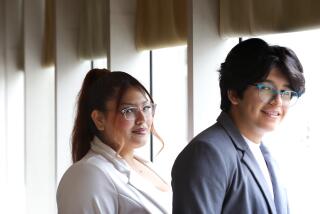Readers React: Close the poverty gap first, then we can talk about improving schools

To the editor: Here are a few observations from an 82-year-old who has worked in all kinds of schools. (“How to make high schools better for students,” Opinion, April 26)
High school students, just like adults, have a picture of their ideal world in their minds. For many of them, the intellectually stimulating qualities that Jal Mehta and Sarah Fine say are pervasive in their “great high schools” are not part of their ideal world. (You remember what you were like as a teenager, right?)
What most teachers regard as “consequential” is not what most students regard as consequential. In some struggling schools, many students do not expect to live past their 20s — thus, they have difficulty concentrating on schoolwork.
“Spending so much time ... exploring one set of questions in depth” may be possible in some affluent schools, but not in classrooms where teachers must repeat lessons for absentees.
In my experience, the kind of knowledge Mehta and Fine want high school classrooms to explore is developed primarily at home. This is all the more reason we should try to close the school achievement gap by closing the poverty gap.
Wendell H. Jones, Ojai
..
To the editor: Mehta’s and Fine’s ideas on creating better public schools are worth reading, but they are not really new. They build on the work done by educators committed to systems based on how human beings think and learn under optimal conditions.
After 30 years in the classroom, I would only add two things. First, the differences between schools exist not just in the contrast between private and public, but also within public education, and those differences depend substantially on ZIP code.
Second, when systems are not set up based on what we know about how developing humans learn, the pressure is on individual teachers to bear a great burden and fight whatever “system” they’re in. Many do so admirably, even in the worst schools.
I so hope that the conversation on the best way for students to learn will continue.
Lynne Culp, Valley Glen
Follow the Opinion section on Twitter @latimesopinion and Facebook
More to Read
A cure for the common opinion
Get thought-provoking perspectives with our weekly newsletter.
You may occasionally receive promotional content from the Los Angeles Times.










